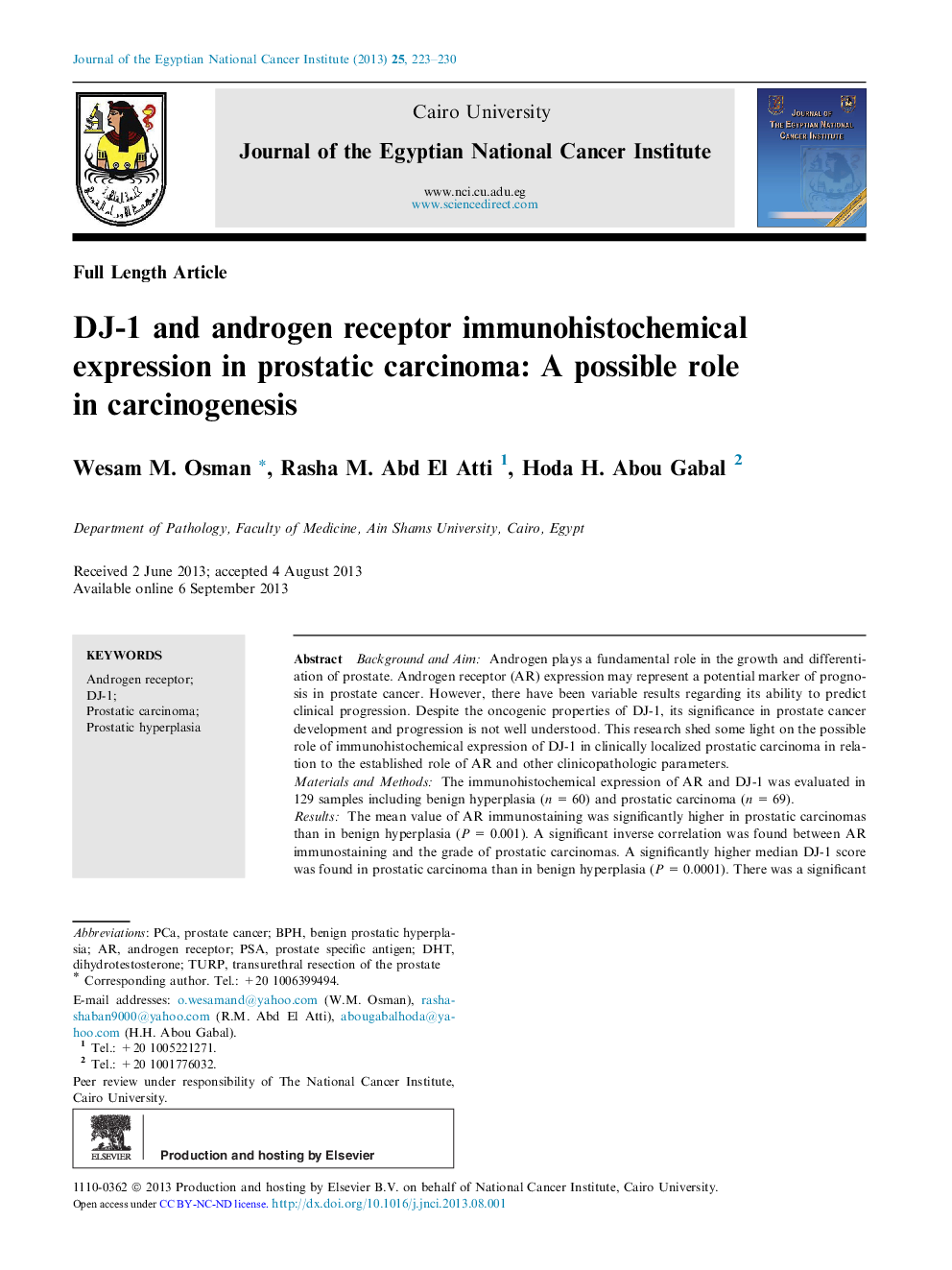| Article ID | Journal | Published Year | Pages | File Type |
|---|---|---|---|---|
| 3988932 | Journal of the Egyptian National Cancer Institute | 2013 | 8 Pages |
Background and AimAndrogen plays a fundamental role in the growth and differentiation of prostate. Androgen receptor (AR) expression may represent a potential marker of prognosis in prostate cancer. However, there have been variable results regarding its ability to predict clinical progression. Despite the oncogenic properties of DJ-1, its significance in prostate cancer development and progression is not well understood. This research shed some light on the possible role of immunohistochemical expression of DJ-1 in clinically localized prostatic carcinoma in relation to the established role of AR and other clinicopathologic parameters.Materials and MethodsThe immunohistochemical expression of AR and DJ-1 was evaluated in 129 samples including benign hyperplasia (n = 60) and prostatic carcinoma (n = 69).ResultsThe mean value of AR immunostaining was significantly higher in prostatic carcinomas than in benign hyperplasia (P = 0.001). A significant inverse correlation was found between AR immunostaining and the grade of prostatic carcinomas. A significantly higher median DJ-1 score was found in prostatic carcinoma than in benign hyperplasia (P = 0.0001). There was a significant direct correlation between AR and DJ-1 score (P = 0.0001). AR is more sensitive in predicting prostatic carcinoma than DJ-1 but DJ-1 is more specific than AR.ConclusionAR nuclear expression was consistently present in benign and adenocarcinoma epithelium. But, there may be limited clinical use for AR expression in localized carcinoma due to its constant heterogeneity. DJ-1 with its oncogenic properties, specificity for prostatic carcinoma and homogenous expression gives an ideal complementary role to AR in the detection and treatment of prostatic carcinomas.
